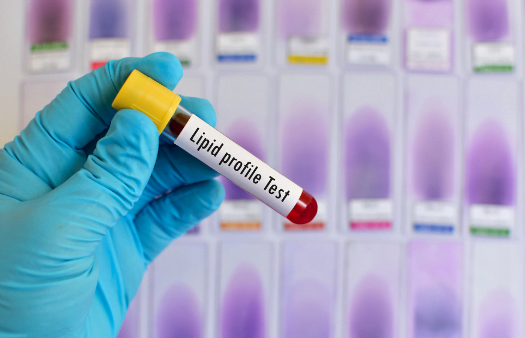Sterol Composition Testing in Plant-Based Foods
The demand for plant-based foods has seen a significant increase due to health benefits and sustainability concerns. However, understanding the sterol composition of these products is crucial for ensuring product quality, safety, and compliance with international standards.
Stanol esters and sitosterols are key components in plant-based foods that can impact consumer health. Stanols have been shown to lower cholesterol levels when consumed regularly as part of a healthy diet, while the presence of excessive sitosterol can lead to potential health issues. Therefore, accurate sterol composition testing is essential for product developers, quality managers, compliance officers, and R&D engineers.
Our laboratory specializes in providing comprehensive sterol composition testing services tailored specifically to plant-based food products. Our team uses state-of-the-art analytical techniques such as High-Performance Liquid Chromatography (HPLC) with UV detection or Mass Spectrometry (MS), ensuring precise and reliable results.
The scope of our service includes not only quantification but also qualitative analysis to identify specific sterols present in the sample. This information is critical for food companies aiming to meet regulatory requirements and ensure product integrity. By leveraging these advanced technologies, we can provide accurate data that supports informed decision-making processes within your organization.
We understand that different types of plant-based foods may contain varying amounts and ratios of sterols. For instance, soybeans typically have higher concentrations of phytosterols compared to other legumes like lentils or chickpeas. Our laboratory can accommodate various sample matrices including oils, flours, concentrates, and blends.
Our testing process begins with proper sample preparation which involves homogenization followed by extraction using appropriate solvents such as n-hexane or chloroform/methanol mixtures depending on the sterol type. After extraction, samples undergo purification steps before being analyzed via HPLC or MS.
Results are reported according to international standards including ISO 14867 and AOCS Cd 25-93 which define procedures for determining total phytosterols in vegetable oils and fats respectively. Compliance with these guidelines ensures consistency across industries worldwide.
- Compliance: Ensuring your product meets regulatory standards such as FDA, EU directives, or other local regulations regarding sterol content.
- Quality Assurance: Providing data that supports ongoing quality control initiatives aimed at maintaining consistent sterol profiles within batches.
- Innovation Support: Helping R&D teams understand how changes in formulation affect sterol composition, aiding in product development cycles.
Scope and Methodology
The scope of our sterol composition testing extends beyond mere measurement; it encompasses a comprehensive approach aimed at providing meaningful insights into the sterol profile of plant-based foods. We utilize cutting-edge instrumentation to achieve this, ensuring accuracy and reliability in every test performed.
Our methodology involves several key steps:
- Sample Collection: Collecting representative samples from various stages of production or distribution.
- Preparation: Extracting sterols using solvents followed by purification methods to eliminate interferences.
- Analysis: Performing HPLC analysis for quantification and MS for identification purposes.
The precision of our results is further enhanced through strict calibration procedures, regular quality checks, and adherence to international standards. This ensures that all data generated by our laboratory can be trusted and used confidently in decision-making processes.
Customer Impact and Satisfaction
The implementation of sterol composition testing has a profound impact on both the industry and consumers alike. By ensuring that products meet required standards, we help food manufacturers avoid costly recalls and maintain consumer trust.
- Product Quality: Accurate sterol analysis contributes to higher quality products by identifying potential issues early in the development process.
- Regulatory Compliance: Ensuring that all tests align with relevant regulations helps prevent legal troubles and maintains a positive public image for brands.
- Innovation Opportunities: Understanding sterol composition opens up possibilities for new formulations and improved nutritional profiles, driving product evolution.
Environmental and Sustainability Contributions
Plant-based foods play a crucial role in reducing environmental impact by offering alternatives to animal products. By contributing accurate sterol composition testing services, we support the industry's shift towards more sustainable practices.
Our laboratory plays an integral part in this transition by providing essential information that enables companies to make informed choices regarding ingredient sourcing and formulation adjustments aimed at minimizing ecological footprints.





